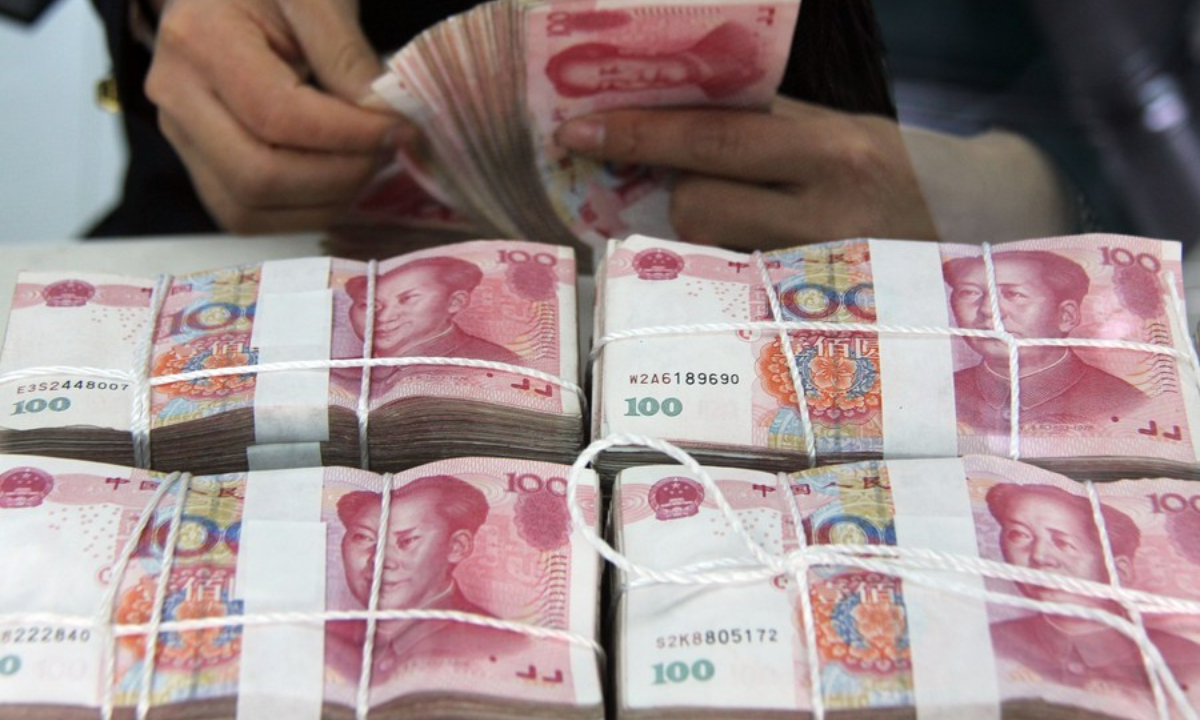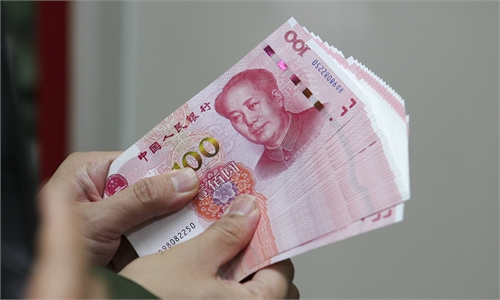
File photo shows a worker counts Chinese currency Renminbi banknotes at a bank in Tancheng County of Linyi City, east China's Shandong Province. Photo:Xinhua
Bonds in China's interbank market held by overseas institutions stood at 3.28 trillion yuan ($477.72 billion) as of the end of January, accounting for 2.6 percent of the total custody of the country's interbank bond market, latest data showed.In terms of categories of the bonds, overseas institutions held 2.23 trillion yuan of China's Treasury bonds and 720 billion yuan of other financial bonds at the end of January, according to data released by the People's Bank of China (PBC)'s Shanghai Office over the weekend.
In January, four new overseas institutional investors entered China's interbank bond market, bringing the total number to 1,075 at the end of last month. Among them, 527 institutions entered via direction investment, while 787 entered through the investment scheme under Bond Connect. There were those who used a mix of both, according to the PBC data.
The amount held by overseas institutions has come lower than that amount registered at the end of December, reaching 3.39 trillion yuan.
The month-on-month reduction was largely due to fewer trading days in January as the traditional Chinese Spring Festival holidays arrived earlier in 2023, industry analysts said.
As expectation that Chinese economy is rapidly rebounding after the country's optimized COVID-19 measures is widely held in the market, more overseas institutional investors are expected to buy Chinese financial assets this year, including bonds..
Wang Chunying, deputy head and spokeswoman of the State Administration of Foreign Exchange said in January, said the country's cross-border capital flows have been generally balanced last year and will become more stable in 2023.
"Supported by such factors as the rebounding economy, the increasing attractiveness and risk-adverse nature of yuan-denominated assets, foreign capital will continue to invest in China's securities and bond market," Wang said.
Foreign investors registered a net purchase of onshore stocks and bonds worth $12.6 billion in the first half of January, showcasing investor confidence at the beginning of the year.


